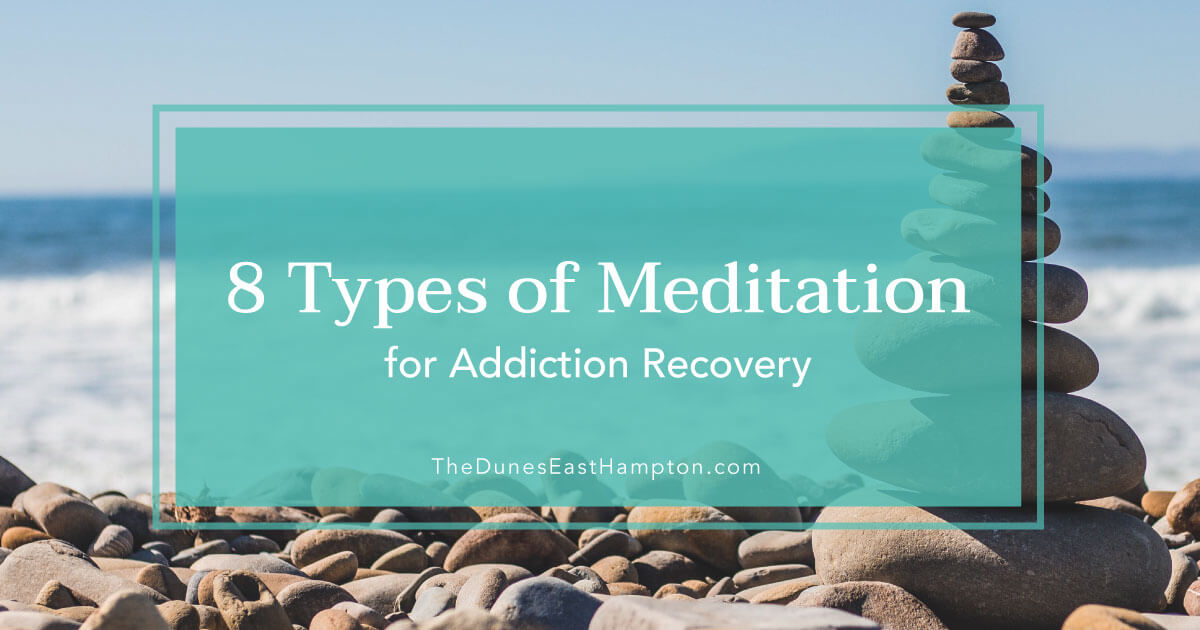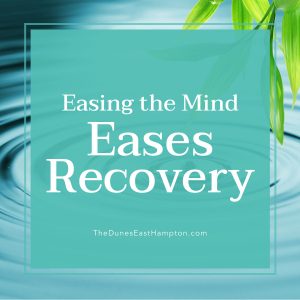
Trying to manage a substance abuse problem on top of an extremely stressful career is never easy. Many of our residents have difficulty simply relaxing. For those coping with painful memories or worried about the future, it is difficult to enjoy the present moment, regardless of the level of success or affluence they’ve achieved. Luckily, meditation for addiction recovery can help.
Meditation to the Rescue
A comprehensive addiction treatment program includes complementary and alternative medicine practices in addition to traditional clinical methods. Of all the alternative forms of healing available, meditation is the most widely used due to its proven effectiveness in helping those recovering from addiction establish healthy mental, emotional, and physical balance.
Meditation dates back thousands of years and has been a staple of spirituality across many cultures. People can also use meditation without being tied to any type of religious practice, making it accessible to all individuals regardless of their spiritual beliefs. That’s why meditation for addiction recovery is so popular and effective.
The Three Components of All Types of Meditation
There are many different forms of meditation, but all types have three common elements that are what make meditation so effective:
 Present-Moment Awareness – By focusing on the present, you cease to worry about the past or the future. You can appreciate what is good at this moment, and you reconnect with the physical sensations of your own body and the world around you.
Present-Moment Awareness – By focusing on the present, you cease to worry about the past or the future. You can appreciate what is good at this moment, and you reconnect with the physical sensations of your own body and the world around you.- Relaxed Focus – Relaxing your conscious mind allows your entire body to relax and de-stress. It may also allow ideas and insights to filter up from your unconscious mind into your present awareness.
- Non-Judgment – By resting in the present moment without judgment towards yourself or others, you are able to see the world (and yourself!) with greater clarity and compassion. It is also extremely relaxing; you may not realize how much work judgment is until you stop doing it.
8 Ways to Meditate
Let’s take a look at the various types of meditation for addiction recovery you can try.
1. Mindfulness Meditation
Mindfulness involves focusing your attention on the experience of the present moment (not on the past or future).
This is the most traditional form of meditation, and probably the one most people think of when they hear the word meditation. It is typically done while sitting in a relaxed pose in a peaceful setting. It typically happens in silence or with calming music playing in the background.
The intention is to practice relaxing the mind and allowing thoughts and feelings to flow freely, without judgment, to be an observer of your thoughts and feelings without having to engage with them.
2. Breathing Meditation
During breathing meditation, you focus on your inhalations and exhalations. Keeping your attention on your breathing gives your conscious mind something to focus on, anchoring your attention in the present moment. In the beginning, you may practice this type of meditation in a group setting led by an instructor. From then on, it’s easy to do on your own whenever you desire.
Some practices, such as Zazen and Qigong, may suggest a particular method for inhaling and exhaling. Regardless of the style, breathing meditation involves slow, steady breaths and the practice of bringing your attention back to your breathing whenever your mind starts to wander.
3. Mantra Meditation
A mantra is a simple word or phrase that you repeat to yourself during meditation. The human mind is incredibly busy at most times, especially for those who are accustomed to fast-paced, activity-filled daily lives. For people who are accustomed to high-stress lifestyles and find meditation difficult, a mantra can help achieve stillness and clarity. Finding a mantra that allows you to focus will help you handle stress and enjoy deeper relaxation during meditations.
4. Guided Meditation
In a guided meditation session, a facilitator guides participants through a visualization. This is typically done with closed eyes after a few relaxing breaths. The scenario you go through is usually a visual metaphor to help you explore inner thoughts, feelings and reactions. It uses your imagination to experience states such as peace, joy, discovery, connection, and growth. This is also one of the benefits of spiritual counseling.
5. Relaxation Meditation
Relaxation meditation is a form of guided meditation that brings the individual’s focus to specific areas of the body in sequence, shifting awareness from each part of the body to the next, relaxing each area of the body as you go. By focusing on specific areas one after another, participants grow more aware of their own bodies and experience deeper relaxation.
6. Meditative Exercise
Doing exercise in a mindful state gives the individual the benefits of both meditation and physical exercise. Practices such as yoga and tai chi and provide this perfect blend of mental stillness and physical activity.
This type of meditation is a great choice for those who have difficulty sitting still and struggle with traditional meditation. It requires just enough concentration to keep the conscious mind focused on the present moment, and helps you feel more connected to your body.
7. Walking Meditation
During walking meditations, you focus on each part of your body as it moves, and on the sensory information from the environment – the sound of the birds in the trees, the waves crashing on the shore, the wind blowing through your hair, etc.
This is also a great choice for those who need a more active type of meditation for addiction recovery, and there’s no better place to enjoy a walking meditation than in the gorgeous natural surroundings here in the Hamptons!
8. Eating Meditation
Eating is something many people take for granted. We may sit down and enjoy a meal, but our attention is usually on something else as we eat – a magazine, a conversation, a cell phone. It can be a delightful new experience to put one hundred percent of your attention on your food, eating slowly and deliberately, noticing the nuances of taste and texture.
Learning to be more mindful while eating is particularly useful for individuals who struggle with weight problems, eating disorders, and those who use food as a coping mechanism for the stresses of addiction. For everyone else, mindful eating simply helps you learn to enjoy your food with greater awareness and pleasure.
Meditation for Addiction Recovery at The Dunes
One of the best aspects of meditation for addiction recovery is that virtually anyone can find a method that fits into his or her lifestyle. At The Dunes, we encourage our residents to explore a variety of relaxation and meditation techniques to find the ones they like the most.
We invite you to try one of these techniques now and start practicing on a regular basis. If the first one doesn’t stick, try another one! If you want to learn more about The Dunes, check out our FAQS!




